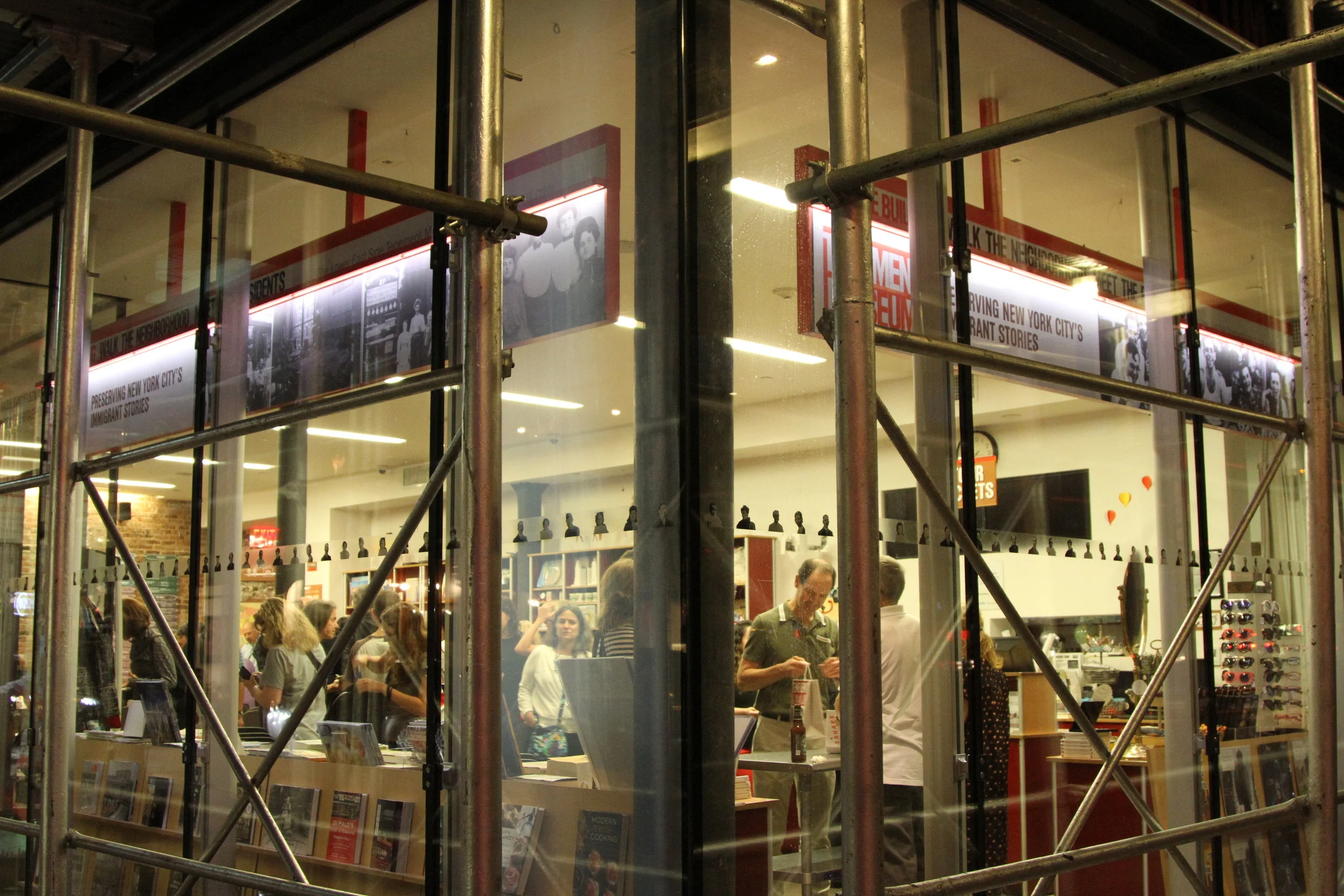Michael Harlan Turkell @ Books Are Magic
Last night, Michael Harlan Turkell introduced his book Acid Trip at Books are Magic, interviewed by Matt Rodbard of Taste Magazine. Turkell is a former kitchen worker and professional photographer who previously brought his interests together with the Back of the House photo series. His latest obsession is vinegar, and not the cheap balsamic you can get at Gristedes for $10.
He first realized what real vinegar can be when chef Barbara Lynch** gave him a taste of the good stuff in her kitchen – handing him a little shot up and saying, “This is the best shit you’re ever gonna have. Enjoy it, don’t fuck it up.”
From there, he needed to know more. “Most chefs don’t know the origin, or how to make vinegar, they don’t make it in-house. I thought that was so weird and wanted to solve that question for myself. And the only way I know how to learn is to travel and taste and watch.”
The Acid Trip was born. Based on a one-hour meeting he scheduled with Massimo Bottura of Modena, the ancestral home of real balsamic, he planned out a tour of Europe. If you read Bottura’s book, you’ll understand why an hour with him is worth sixteen in Al-Italia coach. He also traveled to Vienna, Japan, and eventually, around the United States, meeting with people who are making interesting vinegars and using them in cool ways, none of which we learned much about. In the book these appear as short individual pieces. “I wasn’t a writer then, I was still a photographer, so the only way I could write was to focus on vignettes.” Rodbard deems him a “real reporter, like I was reading this and it sounded like you wrote this description down in a notebook!” Bro hugs all around.
But! This is also a cookbook, featuring a single recipe, plus a lot of flavor profile ideas for the advanced student. “The first time I made vinegar, I did not know I was going to make it,” said Turkell. He had some beer left over from a party that he decided to “barrel-age” and see what happened. After a few months, he opened it to find really good malt vinegar. He started looking for old wine that he could get for cheap to refine his technique and make sure he could replicate the method. “I thought, I want to make a food product, what’s the laziest one I can do?” It’s not all “dumping it and letting it sit,” though. “There are a lot of indicators to watch out for, you have to know when it’s going right and when it’s going awry.”
He does not recommend using a mother. “They can kind of supercharge a new bottle, but you lose aroma and taste. Making vinegar should really be about nurturing it along, slowly.”
Assuming you’ve made some, or gone out of your way to find the really good stuff, what should you do with it? You can put it on a salad – maybe without the olive oil! – but he’s found many other uses, from putting a drop on great Parmesan cheese to trying it on ice cream for dessert. Also, “use better vinegar for your pickles, please. You get this great produce from the market and then use shitty white distilled vinegar?” Okay, in hindsight the man has a point.
Do we really need an artisanal vinegar movement? Is spending our paychecks on fancy oil and beer and coffee not enough? Having been in possession of a really fancy bottle of real-deal balsamic from Emilia-Romana, I would say it is worth it. And you don’t even have to buy the expensive stuff…you probably have a bottle of wine halfway there in your fridge already.
** hold up, the best profile ever written about a chef happens to be about Ms. Lynch and I can’t link to it because it’s fallen into the dark recesses of the internet, but it’s by Kate Christensen and you should find it.







